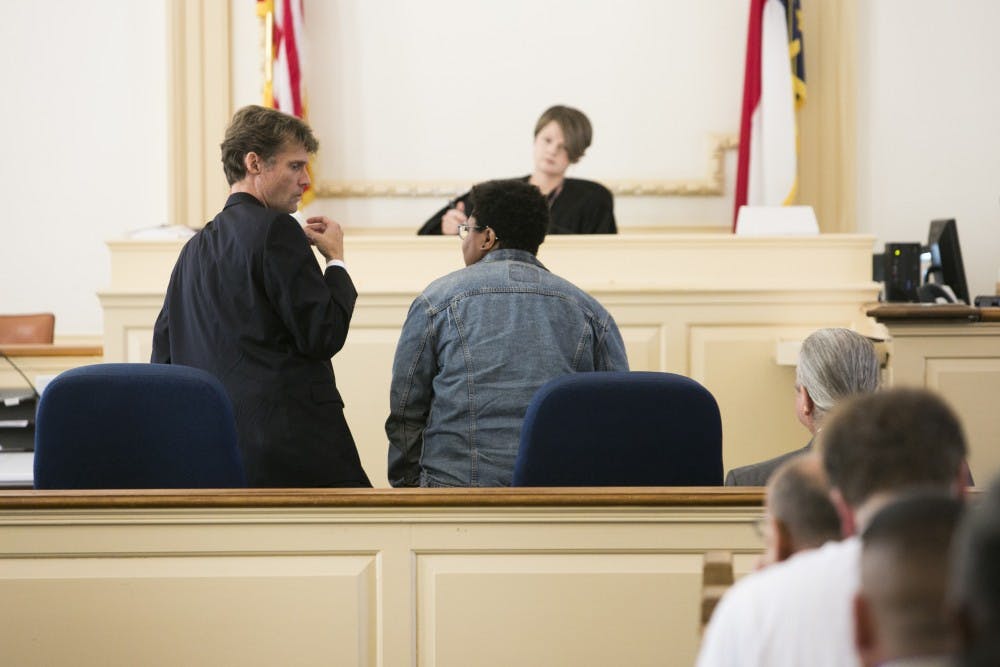Ever since a self-proclaimed Neo-Nazi drove his Dodge Challenger into a crowd of people protesting a 2017 Unite the Right Rally in Charlottesville, Virginia, the presence of Confederate monuments on public property has come under scrutiny in the media and on UNC's campus.
The chaos following the fatal hit-and-run, which occurred about one mile from University of Virginia's campus, sparked a movement of voices and activism. It also galvanized Silent Sam protests at UNC, which had occurred for decades but became more contentious following the attack.
Last week, Maya Little, the UNC graduate student who doused Silent Sam and its pedestal in red paint and her blood in April, faced the charge of defacing a public monument at the Orange County Courthouse.
“There aren't really a lot of cases like this litigated yet,” said her attorney Scott Holmes, a law professor at North Carolina Central University. “So this is all kind of new in the law.”
Maya Little was found guilty by District Court Judge Samantha Cabe, who continued judgement rather than entering it, meaning Little has not been issued a punishment.
Holmes contended that the University's endorsement of Silent Sam’s presence violated the Equal Protection Clause in the Constitution, in the same manner in which it would be unconstitutional for the University to endorse a religion because of the Establishment Clause.
Holmes called numerous witnesses in an effort to portray Silent Sam as a marker of white supremacy, and to argue that its presence constituted discriminatory harm to black students at the University.
Chapel Hill Mayor Pam Hemminger and Chapel Hill Police Chief Chris Blue testified they hope the statue will be relocated. Student activists and UNC professor Kenneth Janken testified to the dangerous atmosphere the statue’s presence creates, citing incidents at McCorkle Place that have resulted in violence. Holmes also filed an unsuccessful subpoena in an attempt to have Chancellor Carol Folt testify.
With each witness, Holmes tried to build a case that Little’s actions — dousing the statue and its pedestal in red paint and her blood — were justified under the necessity defense, which asserts that citizens can violate laws that contradict the big-picture wishes of the Constitution.



